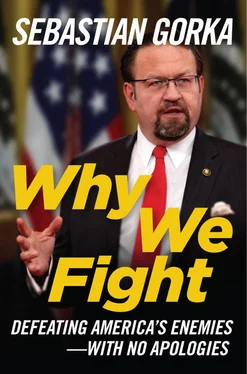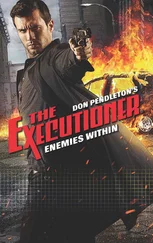For the younger, more internet-based freedom-lovers out there, there are of course the news sites that compete with the mostly left-wing legacy media. You can trust sites like the Daily Caller, the Federalist, Real Clear Politics, PJ Media, and Breitbart—yes, I said it!
For those who still need to get their fingers covered in print ink, stick to the Washington Times and New York Post —you cannot beat the latter for its cover pages! For longer analyses, I recommend the American Thinker and City Journal . And if you want the crème de la crème of conservative intellectual nourishment, do yourself a favor and subscribe to the Claremont Review of Books and Hillsdale College’s Imprimis .
Among the growing sea of blogs and podcasts, my personal favorites are Andrew Klavan, the brave and funny Steven Crowder, Dan Bongino, the fiery Michelle Malkin, Rusty Humphries, and of course, Mark Levin. I am also an addict of YouTube video lectures. You will always learn something from investing an hour into watching a lecture or debate with the likes of true thinkers such as Niall Ferguson or Victor Davis Hanson. Also see the YouTube lectures provided by the Westminster Institute and the Institute of World Politics, which represent a collection of graduate-level education for free.
BECOMING A REAL EXPERT
As I am sure you have gathered, I love strategy. Reading and thinking big things about national security really is my “bag.” If you want to navigate your way through all the garbage that is out there and become conversant in the eternal truths of statecraft and international affairs, ignore the “elite” publications like Foreign Affairs and Foreign Policy in addition to the same old same old boilerplate pumped out by the pseudo-experts at places like the Council on Foreign Relations, CSIS, Carnegie, CNAS, and Brookings, who have done so much damage to our nation in recent decades. Even the RAND Corporation, where I cut my policy teeth in the late nineties, is a shadow of its former illustrious self. Today, it produces one anodyne, boring, and irrelevant report after another, funded most often by your taxpayer dollars and deliberately safe so as not to jeopardize the next juicy government contract.
Instead, I suggest you stick to the basics and educate yourself.
Read the ever-shrinking number of sound and serious periodicals such as Orbis , Military Review , and the US Army’s Parameters. Stick to reading the original works of the greats, such as Clausewitz and Sun Tzu, and the works of the few people alive today who have truly earned the right to be called “strategists.” That list includes Colin Gray, a former adviser to President Reagan, Martin van Creveld of Israel, the quintessentially iconoclastic Ed Luttwak, the splendid Victor Davis Hanson, Carnes Lord, Niall Ferguson, and Angelo Codevilla.
When it comes to going deeper on the threats and the stories I have written about in Why We Fight , here is some further reading:
On our first war with the jihadis, more about Stephen Decatur, and what followed under the Barbary Wars, refer to Alexander Mackenzie‘s Life of Stephen Decatur: A Commodore in the Navy of the United States ; Spencer Tucker‘s Stephen Decatur: A Life Most Bold and Daring ; and Gardner Weld Allen’s Our Navy and the Barbary Corsairs . I can also recommend Thomas Jefferson and the Tripoli Pirates by Brian Kilmeade and Don Yaeger along with Frederick C. Leiner’s The End of Barbary Terror.
For the full story of Captain Eugene “Red” McDaniel’s survival of the Hanoi Hilton, read his own account, written with James L. Johnson: Scars & Stripes: The True Story of One Man’s Courage in Facing Death as a Vietnam POW .
If the story of Whittaker Chambers’ sacrifice and dedication to our nation stirred something in you, you really should read it all in his own words, as so many people have said his writings are life-changing. Start with Witness and then his collected writings published under the title Cold Friday . A solid overview and introduction to the Chambers that I found useful was Daniel J. Mahoney’s Whittaker Chambers: Witness to the Crisis of the Modern Soul , which can be found in the Intercollegiate Review , Spring 2002. And Richard M. Reinsch III’s Whittaker Chambers: The Spirit of a Counterrevolutionary is helpful in putting the man in his philosophical context.
On the eternal nature of war and the essentials of strategy, in addition to Clausewitz, Sun Tzu, and Machiavelli, I suggest a few modern titles:
Colin Gray: Modern Strategy
Edward N. Luttwak: Strategy and Politics
Hew Strachan: Clausewitz’s On War: A Biography
Martin van Creveld: The Culture of War
Victor David Hanson: The Western Way of War and The Second World Wars
Carnes Lord: The Modern Prince: What Machiavelli Can Teach us in the Age of Trump
John Keegan: History of Warfare and Strategy (US Marine Corps publication MCDP 1-1, the 1991 version with introduction by General Krulak)
For a deeper analysis of the strategic challenges we face today, you can find most of my journal articles online. The best ones to start with are:
“How America Will Be Attacked: Irregular Warfare, the Islamic State, Russia, and China,” Military Review (2016)
“The Islamic State and Information Warfare: Defeating ISIS and the Broader,” (ed.), Threat Knowledge Group (2015)
“ISIS: The Threat to the United States,” with Katharine Gorka, Threat Knowledge Group (2015)
“ISIS, Russia and Iran: The Role of Army Special Forces in the U.S. Response,” (ed.) Threat Knowledge Group (2014)
“Know your Enemy,” Special Warfare , Fort Bragg (2014)
“The Complexity Trap,” with M. Gallagher and J. Geltzer, Parameter (2012)
“An Actor-Centric Theory of War,” with David Kilcullen, Joint Forces Quarterly (2011)
“The Age of Irregular Warfare So What?” Joint Forces Quarterly (2010)
“Understanding History’s Seven Stages of Jihad,” Sentinel (2009)
On the threat we face from the global jihadi movement—groups like al-Qaeda and ISIS, and nations such as Iran—see my first book, Defeating Jihad , the professional text I co-authored and co-edited with the late Colonel Nick Pratt and Chris Harmon, Toward a Grand Strategy Against Terrorism , and my wife Katharine Gorka’s book, Fighting the Ideological War: Winning Strategies from Communism to Islamism . Ayaan Hirsi Ali’s Infidel is also essential reading for the broader context, as is Ibn Warraq’s Virgins? What Virgins? , the superb The Closing of the Muslim Mind by Robert Reilly, and Bernard Lewis’s What Went Wrong: Western Impact and Middle Eastern Response .
The subject of China is massive. Start with Michael Pillsbury’s The Hundred Year Marathon and check out the excellent analyses by retired US Army Lt. Col. Tim Thomas of Fort Leavenworth’s Foreign Military Affairs Office. For example, his presentation on current Chinese strategic thought. Additionally, follow the excellent writings of David Goldman, who writes the Spengler column online.
On what Russia is doing and what it plans to do next, there are few better than Ed Lucas of The Economist . See his book The New Cold War: How the Kremlin Menaces Both Russia and the West and his website, as well as the writings of Ilan Berman of the American Foreign Policy Council, who is also an authority on Iran and counterterrorism in general. From the practitioner’s perspective, the writings of former CIA Moscow station chief Daniel Hoffman, who is now my colleague at Fox News, are excellent and can be found online at The Hill and Fox News.
Читать дальше












